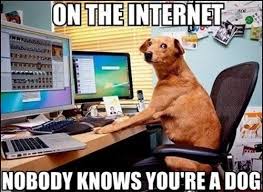Have you seen this famous video on Youtube where one guy dances and it keeps on attracting other people to join him? Soon enough this one person’s weird dance is a group dancing together. In case you haven’t, check it out (it’s just 3 minutes long):
Organizations grow similarly. Whether the founding team intends to or not, every startup project ends up acquiring cult-like habits. Here’s how that happens.
What makes company cultures different from each other?
Imagine your name is Paras and you’re the founder of a startup project (it could be a company, a non-profit, a religion or even a country). You have a weird habit: you like to come to office by noon and stay late (say until 8pm). You hire your first employee, and on the first day he comes to office at 9am (just like he did in his previous job). The empty office seems odd to him, and it becomes odder still when he sees you stroll by in office during his lunchtime. In the evening, since it’s the first day of his job, he waits for you to leave but the entire time, you are happily busy on your laptop. You leave office by 9pm and a couple of minutes after you, the new hire leaves. Thinking of his first day as a fluke, the new employee comes in early again tomorrow but the same thing repeats. ...
